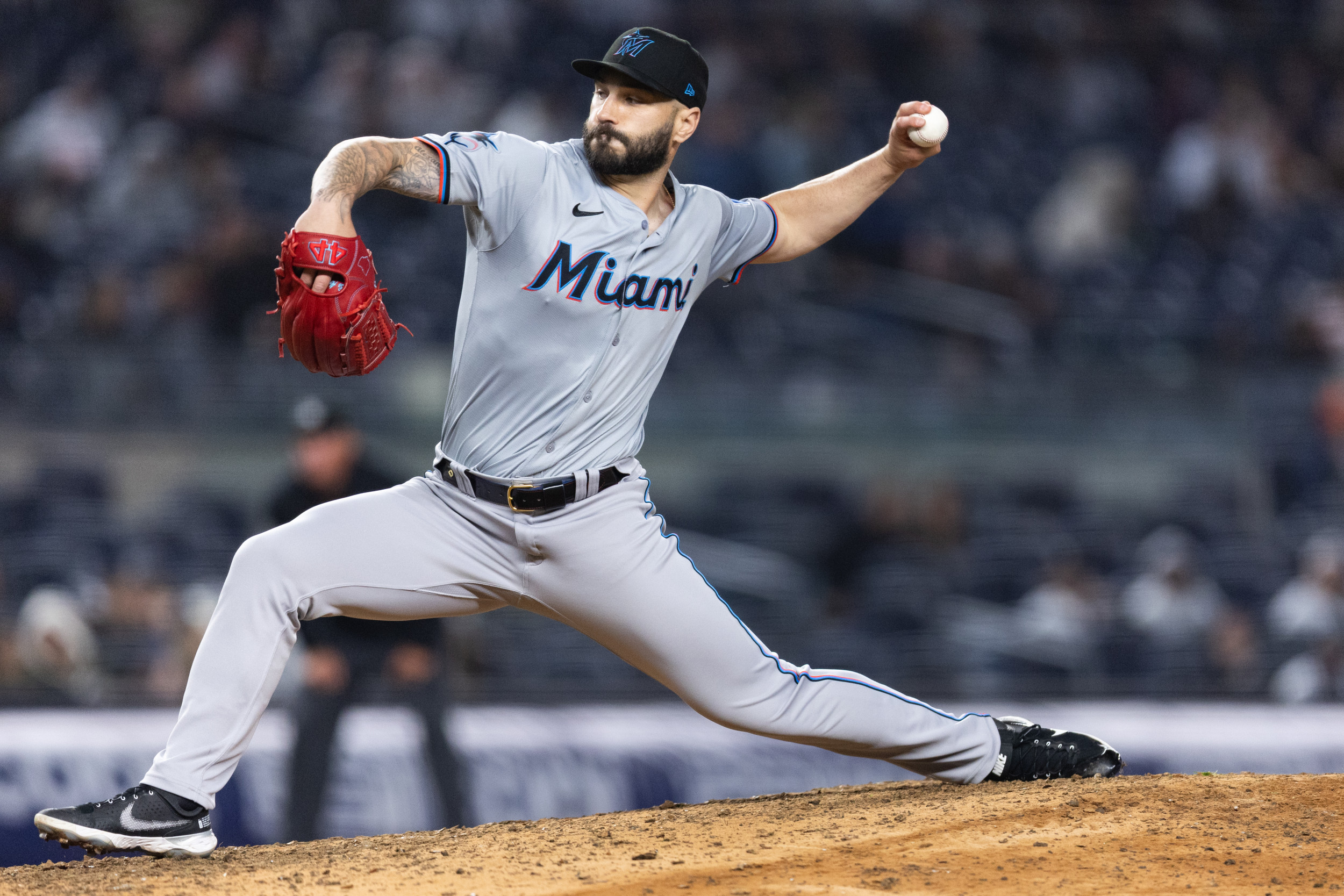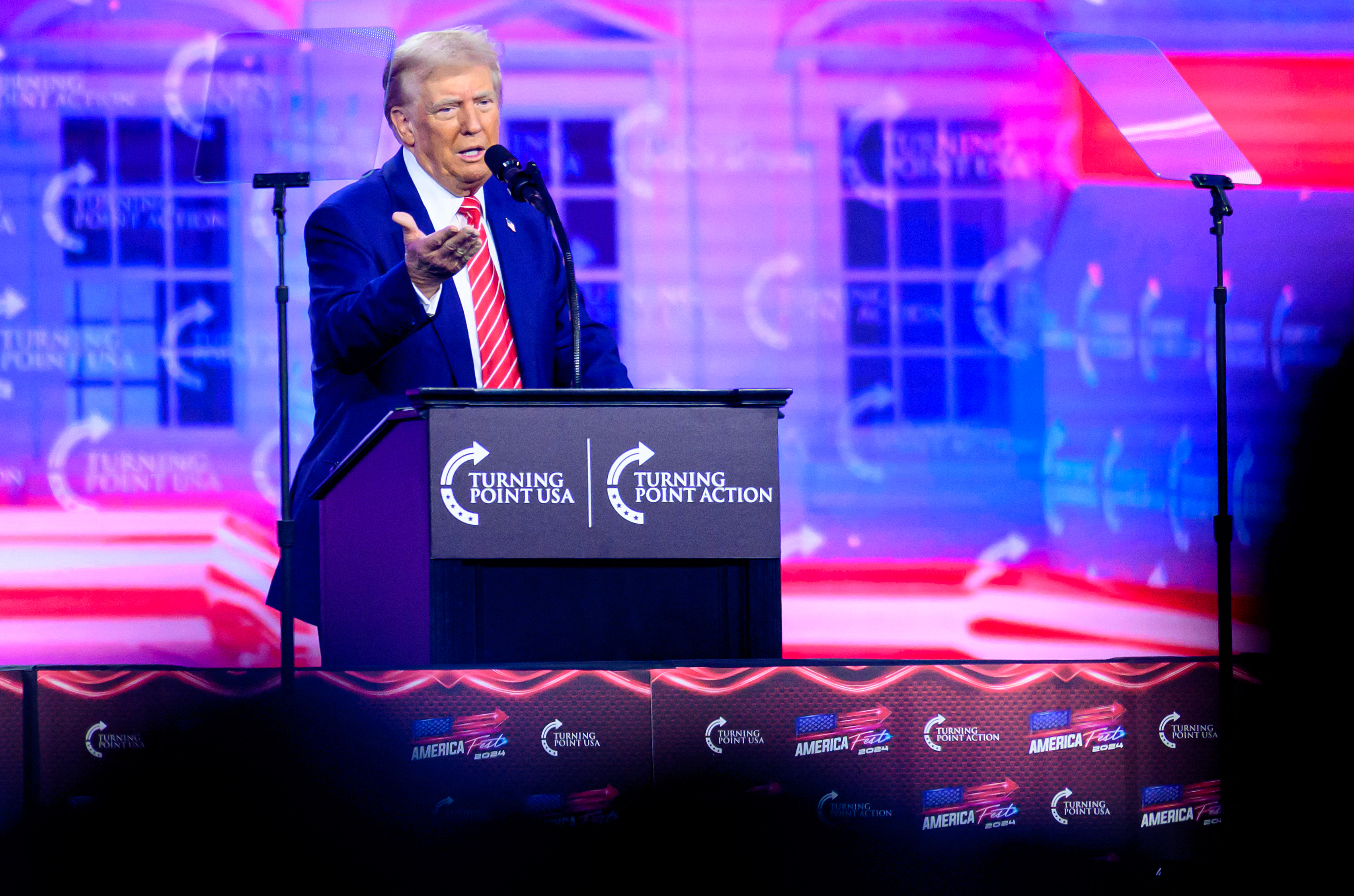Social-media platforms are flooded with videos of young people celebrating Donald Trump's presidential victory at college campuses across the country, showing the broad support the Republican candidate enjoyed among Gen Zers, despite Kamala Harris' efforts to get first-time voters on her side.
A student shared a clip on TikTok of students rushing into the streets on the Grand Canyon University campus in Phoenix, Arizona, "after hearing Trump won." Hundreds of young people can be seen running toward a green space on campus and chanting "USA! USA! USA!"
Grand Canyon University students erupted in cheers in the early hours of November 6, as Fox projected that Donald Trump would become the 47th president of the United States. pic.twitter.com/IfCO7KJGKr
— Newsweek (@Newsweek) November 6, 2024Another Grand Canyon University student who was part of the chanting, jubilant crowd posted another clip of the celebration on TikTok, writing: "Blessed to go to a school that loves America."
Another video shared on X by 1819 News shows dozens of Auburn University students in Auburn, Alabama, singing the national anthem and waving a U.S. flag in response to Trump's declared victory against Harris.
Trump is likely to have won both states where the two campuses are based. While Arizona hasn't been called yet as only 71 percent of the ballots have been counted, the Republican has a margin of +5, as per data by The New York Times. In Alabama, Trump won with 65 percent of the vote over Harris' 34 percent.

In other parts of the country, young people are in mourning. Harris' concession speech on Wednesday in Washington, D.C., was attended by several young supporters in tears, as photos shared by news agencies have shown.
How Gen Z Helped Trump Win Election
These very different reactions to Trump's victory speak of the polarization within one generation whose vote has been starkly split between the two candidates this election season.
Forty-one million Gen Z voters were eligible to vote during this year's election, of which 8 million were first-time voters—enough people to significantly help shape the final result.
Gen Z's backing of Trump has upset general expectations that young people would support Harris' bid. The vice president and her running mate, Tim Walz, concentrated significant efforts on reaching this demographic—including by introducing memes in their campaign's narrative.
Exit poll data by NBC Washington showed that 55 percent of voters aged between 18 and 29 (which include Gen Zers and younger millennials) voted for Harris, while 42 percent voted for Trump. Gen Zers, born between 1997 and 2012, are now between the ages of 12 and 27. Millennials are now between 28 and 43.
Compared to 2020, a significant number of young voters have shifted toward Trump. Four years ago, 60 percent of those aged 18 to 29 voted for Joe Biden, and only 36 percent cast their ballot for Trump.
Within this same age group, 49 percent of men has backed Trump, compared to 37 percent of women who have done the same, a sign of the gender divide that has come to characterize American politics.
Daniel A. Cox, director of the Survey Center on American Life at the American Enterprise Institute, has written extensively about what he called "the war within Gen Z."
In an article published in January, Cox wrote about the rapidly deepening gender political divide among the younger generation, with women growing more politically aware and more liberal in recent years since the #MeToo movement and men shifting right as the old-fashioned ideology of masculinity faces a crisis.
"Out of a sense of increased insecurity, more young men are adopting a zero-sum view of gender equality—if women gain, men will inevitably lose. It's an outlook that makes them defensive, encourages them to ignore or overlook enduring challenges women face in society, and can even spur misogyny," Cox wrote.
Trump and his running mate, JD Vance, with their defense of traditional patriarchal values and conservative ideas, offered a lifeboat to these unmoored young men. On top of that, while the Republican ticket might have not done the same amount of outreach toward Gen Z that the Harris-Walz campaign did, it might have represented the change that so many Americans appear to have wanted.
In an opinion piece for Puck, political journalist Peter Hamby wrote that, while the Harris-Walz campaign focused on creating "good vibes" around their ticket, appealing to young voters with celebrity and meme culture, it failed to address the issue of the economy, which was among the top concerns of all voters.
After four years of the Biden-Harris administration, "pretty much everyone" among the young voters interviewed by Hamby, "even some Democrats, figured that Trump could probably help their pocketbooks, whatever his flaws."




















 English (US) ·
English (US) ·